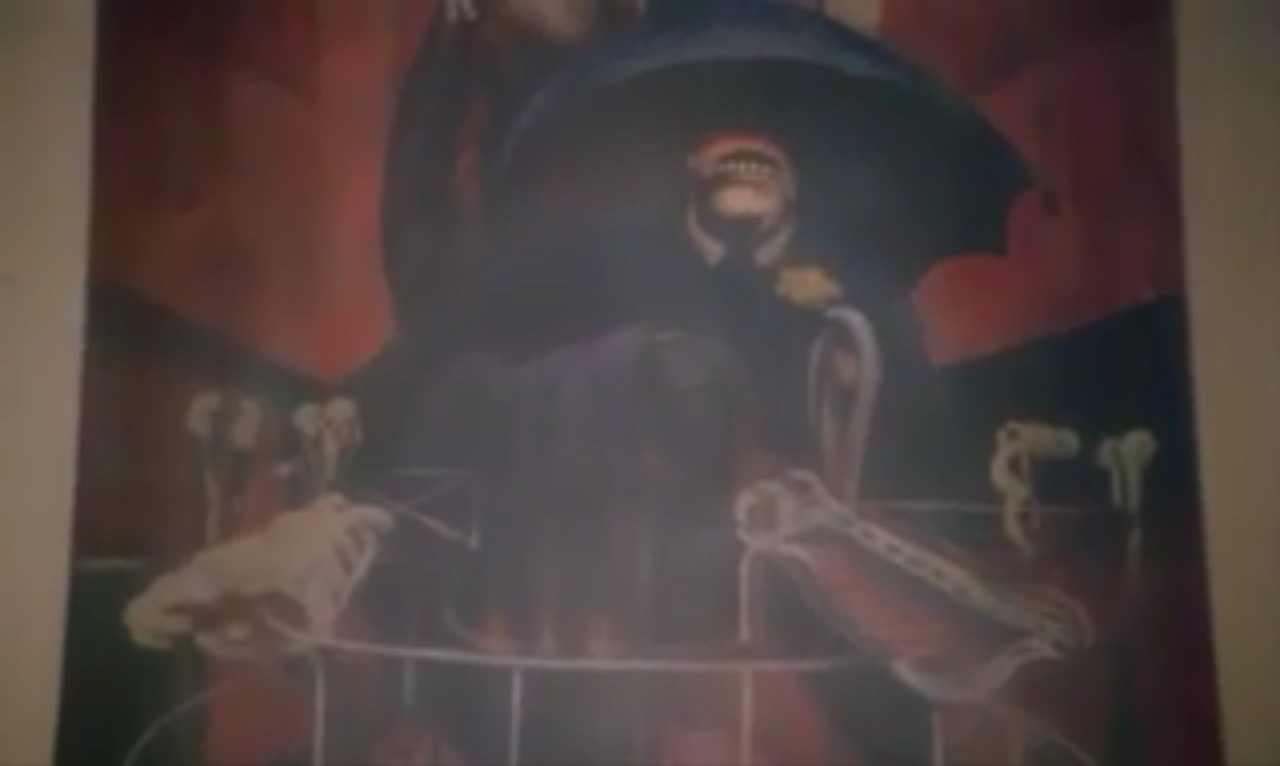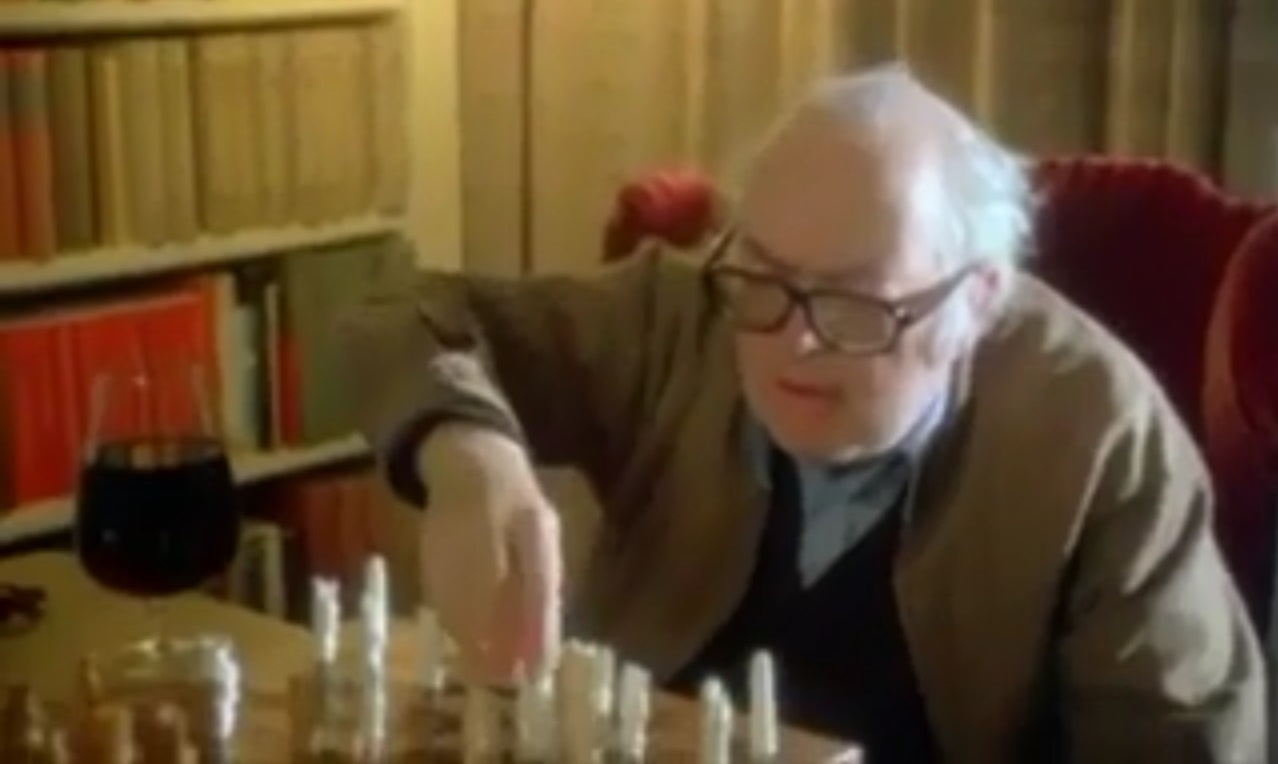Der Richter und sein Henker

“This is
the worst autumn we’ve had in a long time.” Death
of a police lieutenant, shot in the Swiss Alps, mansion above, village below, cp. The Deadly Game,
dir. George Schaefer. “Schmied
was wearing a tuxedo under his overcoat.”
“Oh?”
“You didn’t
take a look at the body?”
“I don’t
like corpses.”
“It was in
the official report.”
“I don’t
like official reports!”
“But you
were at the autopsy.”
“Schmied didn’t wear his tuxedo at the autopsy.” End of the
Game by Friedrich Dürrenmatt, who is among the actors
(second theme first, death of a lady in Istanbul thirty years before, cp. The Visit, dir.
Bernhard Wicki, also L’Immortelle, dir. Alain
Robbe-Grillet) and co-wrote the screenplay with the director, “the judge
and his hangman”.
The dead man’s
assistant has the case and the fiancée, “that aristocratic walking around.”
“Whatever
you do, Anna, don’t worry, it will be all right. I
love you, for what you are. Don’t be afraid. They can’t do anything to you.”
Letter G, Gastmann à la Citizen Kane,
which carries the implication of Mr.
Arkadin (Confidential Report). “Half of China is here, let’s get the hell out.”
“Wolfgang
Mozart by Pinchas Zukerman!”
“Robert Schmied, your best man, went to Gastmann’s
parties as Dr. Prantl, posed as a professor of
history at the University of Munich.”
“My word,
Otto, I didn’t know.”
“Schmied was a—spy for a foreign power.” A visit with the Minister. “Of
course, I’m not investigating Gastmann... it’s
in the best interests of our economy,” the munitions industry is
mentioned. “I feel lousy too, but if Gastmann is investigated I would not only lose my career, I
would lose my life.”
Nabokov wrote a
part for himself in his screenplay for Lolita
as the butterfly expert Nabokov fleetingly asked for directions by Humbert Humbert on his wanderings,
Kubrick did not film it, Dürrenmatt and Schell remedy
the oversight by having their detective go and consult “that famous
writer... Friedrich... if anyone would know about Gastmann in that
town, he would,” the
commissioner has a few of his books including this one somewhere. “Let’s say,”
on behalf of the nation Dürrenmatt returns the
compliment of The Third Man (dir.
Carol Reed).
An old wager, “I
have to continue to commit crimes before your eyes... whoever is next,”
cp. The Quiller Memorandum, dir.
Michael Anderson. At the end the band is playing from Fellini’s 8½.
Richard Eder of the New York
Times, “a metaphysical cuckoo clock of a movie, full of talent and
fog.” Richard Schickel
(TIME), “unconscionable bore”. TV Guide, “Swiss playwright
Duerrenmatt, who collaborated on the screenplay, is known for his treatment of
the bizarre, and his authority over the filming of this story is evident in the
layers of confusion spread over it until the denouement.” Hal Erickson (All
Movie Guide), “existentialist crime story.” Halliwell’s Film Guide, “sometimes
fascinating, but finally annoying,” citing Charles Champlin
(Los Angeles Times), “addled,
overreaching, misjudged, ill-made, wasteful, posturizing,
uninteresting and tedious little epic”.

Marlene
The artist as
artiste.
The real trouper,
a thoroughly well-read aristocratic Berlinerin whose lament for the city that was is as eloquent
as her defense against German critics after the war.
The somewhat complicated
method employed by Schell depends on circumstances and is under the sign of
Welles in Citizen Kane (Marcel Ophuls
has a similar sense of humor, Werner Herzog
isn’t very far away).
Quatsch and kitsch
are old nemeses, the lady is au courant,
the past doesn’t interest her, Proust she read a long time ago.
Temperament, the
obligatory roasting (of Fritz Lang, in this instance), Schell at work piecing
it together like Welles at his editing table.